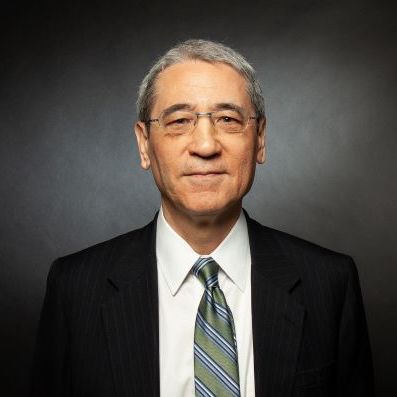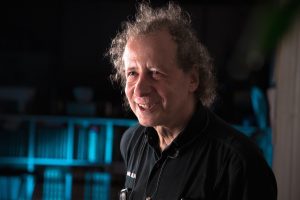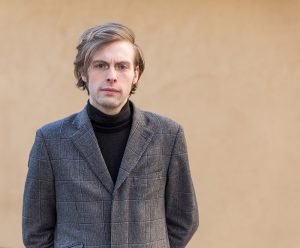
Loren Rains Avedon is an American martial artist, actor, Emmy Award winning stunt man, co-producer, action director, and second unit director. Grand Master Avedon is a 9th Dan black belt in Hapkido certified by the IHF and the WHF. GM Avedon is also a 9th Dan black belt and Grand Master in Taekwondo serving as the Secretary General of the USTF a Federation created by one of the founders of the Kukkiwon. 10th Dan Grand Master In Kon Park (Dan #303), of more than 70,000,000 Kukkiwon black belts. GM Avedon is known for his portrayal of Jake Donahue in “The King of the Kickboxers”, Scott Wylde in “No Retreat, No Surrender 2: Raging Thunder”, and Will Alexander in “No Retreat, No Surrender 3: Blood Brothers”. In Europe (Germany et al.) the movies were also titled “Karate Tiger 2, 3 and Karate Tiger 5”. These epic starring roles fulfilled his contract with Seasonal Films in Hong Kong. According to Black Belt Magazine in 1992 in the United States the movies ranked numbers four, five and six of the top 10 Martial Arts movies ever made, only surpassed by the legendary Bruce Lee.
Grégoire Canlorbe: How do you remember your collaboration with Cynthia Rothrock in No Retreat, No Surrender 2?
Loren Avedon: She was wonderful to work with, very down to earth and very kind. In the 1980s, we were both doing a lot of tournaments, and I met her as a martial artist when she was training with Master Ernie Reyes Sr. the father of Ernie Reyes jr, as part of the famous “West Coast Demo Team” many years before I saw her on the set. Most of my acting was with Max Thayer in that film but all of us collaborated beautifully, really. We still keep in touch, though of course life takes you where it takes you. Max Thayer is still a dear friend and I see him whenever I am in LA.
Grégoire Canlorbe: In terms of martial arts, how did you allow your character in No Retreat, No Surrender 2 to stand out from Kurt McKinney’s character in the first movie?
Loren Avedon: If you notice Kurt’s technique, he’s doing more crescent kicks and techniques like that rather than spinning heel kicks for example. I don’t know what his martial art background is, but they hired me based on my abilities. And honestly, I don’t want to pump myself up too much, but let’s just say they were very happy that I had all of this capability to do reactions, take a lot of punishment and do most of my own stunts. I was a good athlete. Now you have these athletes that are absolutely incredible with all kinds of creative “trickster” kicking, but that was started in the late 90s.
Grégoire Canlorbe: Do you stand ready to co-act one more time with your No Retreat, No Surrender family in some new sequel?
Loren Avedon: Assuredly, and I would be especially thrilled if the Blood Brothers were reunited. For, whenever Keith and I are together, everybody goes kind of crazy. Keith and I are currently putting together a film interviewing screen writers and we might have something together very soon.
Grégoire Canlorbe: The King of the Kickboxers—sometimes known as Karate Tiger 5 in Europe—is thematically similar to Kickboxer but original in its snuff film storyline.
Loren Avedon: We—Billy and I and the whole team were trying to create that experience of revenge as written by Keith Strandberg. We were focused on the “snuff film” plot. In KOTKB my much old brother is killed at the beginning of the film. In Kickboxer, the brothers are closer in age. By the way, Dennis Alexio, the gentleman who played Jean-Claude’s brother, was a good friend of mine.
Grégoire Canlorbe: The final fight is quite phenomenal. Please tell us about how it was choreographed, executed, and shot.
Loren Avedon: Billy was phenomenal to work with, and fight with. Without him, it wouldn’t be such a great picture. He is so humble. He came to me in the beginning of the film and said “Loren, this is your movie and I want to do everything I can to make it great”. The film was shot in 14 weeks and the conditions were very hard. It was hot and humid all the time in Thailand, and I got tremendously ill, several times. Billy came in 35 pounds heavier and left about 30 pounds lighter. It was so much fun though, but a lot of pain as well, all part of making a great action movie.
At the time, there was no pre-visualization, no monitors, no playback, none of that. It made the filming of the final fight more challenging, choreographing everything on the spot, but working with the best in Hong Kong they didn’t need playback, they knew immediately if we needed another take. There was a brilliant choreographer, who also grabbed the camera and shot the fight—Tony Leung Shin-Hong. He is still working in Hong Kong today as a director and action choreographer. He is the Green Dragon Master in the first IP Man.
Grégoire Canlorbe: Please tell us about that movie called Los Angeles: Street Fighter also called Ninja Turf which is quite early in your acting career.
Loren Avedon: It was just kind of fun to be in a film with my Masters. We shot a lot of it sort of on the fly. We didn’t have permits. We would do it on the weekends, as Master Jun Chong and Master Philip Rhee were running the Taekwondo studio during the weak. A great example of how we got away with many shots is when we’re walking up as a gang to the actual “Fairfax” High School campus after school had let out for the day, so that’s the real Fairfax High School, and those are real students there. We just pushed them all out of the way and did the scene. Master Rhee, in the end of the film, hits me a couple times with a real wooden sword, and kicks me in the stomach, I throw my feet in the air and land face down flat a stunt commonly called a “dead man”. All I did was put some cardboard down on the alley street to cover all the disgusting trash and human feces there in that alley near “skid row” in downtown LA, where all of the drunks, drug addicts and homeless people were living on the street were before we came. It was pretty yucky in that alley, but we made a fun low budget movie.
I had been around film cameras all my life because of my mother. She was a TV commercial producer and director, and advertising creative director. She put me in many of her commercials. She knew all the big movie and TV stars, so I grew up around all of these big stars. All of her friends were, you know, my uncles, and aunts really, as my Father and Mother were never married, and my Dad had moved to Italy with his daughters by marriage, to run “Eve of Rome”, where he met his second wife Princess Luciana Pignatelli Avedon. It was martial arts that really changed my life. I needed male role models and I found them in the great Martial Artists at Jun Chong Taekwondo.
Grégoire Canlorbe: How do you think that Los Angeles has evolved since the time of Ninja Turf?
Loren Avedon: That’s a pretty sad question to answer, because Los Angeles has become less relevant in filmmaking. I just visited Los Angeles last May of 2023, and it was nice because there was recently some rain, and everything was green, as there had been such a long drought, the air was a bit fresher. But Los Angeles is, shall we say, not what it used to be. Now it’s easier to shoot in other places and with digital cameras, worldwide locations, it is far easier and cheaper to shoot great movies with the ability to move quickly, and with far less hassle. Los Angeles has become ridiculously expensive and is truthfully “shot out” which means that the locations have been used in so many movies and TV shows. Audiences know its Los Angeles. Unless you are working on a studio production which I did very often as a stunt man, stunt double. I got back into stunting so I could be a good single Father to my daughter Nicole. I was not going to let her grow up without a Father like I did. She has turned into a wonderful young lady. Daughters need their Fathers, and I was determined to be the Father I never had.
Grégoire Canlorbe: Many of those 80ties movies in the martial arts and action genres were produced by that iconic duo that are Menahem Golan and Yoram Globus. How do you assess their legacy?
Loren Avedon: Cannon Films, Golan Globus productions made all of these tremendous Chuck Norris movies. Using Israeli funding and locations in Israel. They were really instrumental in making martial arts movies outside of Hong Kong productions. It’s wonderful—I love watching those old movies. I just saw Richard Norton when flipping through the television channels last night. That was probably one of their productions. I never worked with Cannon, it wasn’t my time.
Grégoire Canlorbe: What is your take on the Ninja saga starring Scott Adkins?
Loren Avedon: I think it’s phenomenal. Scott is an amazing martial artist and a good action actor. But when you’re in the business, you become a bit more critical of things; you see things that others don’t. And the time that he had to shoot these movies is much shorter than that I had, usually about 3 weeks. The movies I am so well known for we had at least 3 1⁄2 months for principal photography.
Grégoire Canlorbe: How do you explain that unique innovativeness witnessed over the course of Asian history when it comes to martial arts?
Loren Avedon: I think it just comes down to necessity. You know, all of these weapons and things that they used were developed using farm tools, because people weren’t allowed to have swords or anything like that because of the laws preventing common people possessing weapons. Only the Emperors armies could have weapons of war. Lords, Kings or only those who could afford the expense of maintaining and army with such weapons helped keep the masses in line. Weapons were allowed only for the elite and the warrior class, devoted to their duty to protect their Kingdoms. I am so grateful most of the Chinese martial arts were preserved to some degree. It was some Army general or someone who whispered in Mao Zedong’s ear that convinced him to renounce his original plan to eliminate all martial arts and execute all Masters. Thank God that Mao eventually allowed it to become a sport instead— wushu.
I was just telling my wife the other day that I would fly to San Francisco to get videotapes of these 1970’s Chinese movies, made in Hong Kong or Taiwan because it was so entertaining to watch the choreography. In those days they would go out, as you probably know, and not have any script, just find an open field, or any place they could shoot, and figure out when they got there how to create a fight scene and to carry on with it until they had a feature length film. They just wanted it to be exciting and entertaining to watch so they could show it in the theaters. They used action to bridge the gaps between any culture because a punch in the face is a universal language. Throughout history, when we come to today, the Chinese and all Asia are still practicing martial arts. If you’ve seen on YouTube the videos of all the children practicing in China, I wish we had that in the West, honestly. We are losing one of the most important things all humans need especially growing up, discipline.
By the way, even in the 20th century, Bruce Lee got in a lot of trouble for practicing Wing Chun in San Francisco and for teaching white people, but that’s the truth. Kung Fu and the Shaolin Temple and all they do to Master an ancient art is absolutely phenomenal. I believe that Mao would not have survived as a dictator if he had destroyed the Shaolin Temple. The Chinese people would never allow that.
Grégoire Canlorbe: What about a new collaboration with the director of the two first No Retreat, No Surrender—Corey Yuen?
Loren Avedon: I believe Corey Yuen is between the U.S. and Hong Kong and working on other things. I don’t know exactly what’s going on with him, but whenever we do the new Blood Brothers, Keith and I want to hire a Chinese director assuredly. We want that ground pounding action.
Grégoire Canlorbe: What martial-arts movie do you believe could be made about the contemporary relationship between America and China? What kind of story could be told?
Loren Avedon: Throughout history, we have come to the aid of the Chinese many times, my Father included. My Father was a fighter pilot in the Navy in WW2 and the Korean war. Inside of one of his leather flight jackets is the Taiwanese flag, which of course is a disputed territory. In Chinese it reads “this is a friend of Taiwan, protect him and help him all you can” China and America are linked far more than people really know or will admit, and clearly that connection and how the Chinese know that the United States and the West have always come to their aid historically to free them from foreign occupation and allow them to be a sovereign nation. Most recently from Japanese occupation for 40+ years in WW2 is something that should be conveyed cinematically. It has been done in “Empire of the Sun”. It would be great to do a series like “The Crown” about China, but there just isn’t enough interest in doing so in the west.
Xi Jinping is a very powerful and smart leader. I hope that all of this, shall we say, South Pacific conflict, the Chinese trying to claim a little bit more of the international waters by creating man made islands, can be resolved peacefully. Because we see that the world is really kind of in turmoil now, all of this war and various things going on all around the world, such as Global Climate Change. In China we don’t really know what’s going on, because we’re given what we’re allowed to see by the media. Militarily the NSA here in the United States knows a lot more.
China has 5,000 years of history, America’s not even 250 years old. We can all learn from each other. People don’t really seem to understand that shamefully. There are almost two billion people in China while we’re only a few hundred million. We should all work together because this earth is all we have. We can destroy it many times over. I pray for the day we all come together to clean up the planet and live sustainably after 150 years of the Industrial revolution. We need to continue that relationship with China and remain allies, in spite of human rights abuses and China’s Communist regime.
The Chinese know from our history with them. The last sort of conflict that really was an issue China got involved with openly was the Korean War, which my father was a part of. He was called back into the service and trained Naval Aviators. His call sign was “Deadeye” because he was a double Ace plus. As a Commander in the Navy and was being groomed to become an Admiral. He was a top gun instructor during the Korean war, flew many missions in the war and also trained the ROK Airforce. He decided not to make the Navy his career, he’d seen so many men die in combat and didn’t want the responsibility of sending men into battle. He’d seen enough death. In WW2 the average fighter pilot was only to survive 5 missions. My Father was an amazing pilot, got his pilots license in 1936 at age 12. He had logged enough hours in flight and was granted that license at such a young age, amazing.
Grégoire Canlorbe: Do you sense the art of fighting when one is working as a producer willing to deliver a qualitative action movie has something to do with the art of fighting as a martial artist?
Loren Avedon: It’s about fighting with enhanced realism for me. You have to Master technique, then heighten creatively but realistically. If you see some Marial Arts movies today, they’re over-choreographed; it lacks the proper rhythm and reactions. There must be a certain time for reaction and also for a little bit of acting within the fighting. People need time to absorb what they’ve seen. I think it’s the video game generation that ruined things. A fight should be creative but more importantly believable. The Chinese were great at that and also allowed me to do as much of the action as possible. Truthfully, they demanded that.
Grégoire Canlorbe: You stood as a second unit director on Tiger Claws III, didn’t you?
Loren Avedon: Let’s just say I had to jump in every once in a while, and help. There was a cameraman and choreographer there. While Jalal was directing other things, I would take a splinter unit camera and direct my fights and some shots that were needed in other parts of that studio. He had converted a movie theater that he owned in Toronto, Canada into a studio. I think of the name of the studio/theater was “The Donlands”. His company is “Film One”.
I love to work in Canada. It’s a bit cold in Canada but people there are so friendly, it was a lot of fun. Jalal and I may be doing some things together in the near future. It’s interesting how the floodgates have opened during the pandemic, when people had to stay home the dusted off their old DVDs or Video cassettes and all of a sudden people were watching old movies. Keith Vitali just did this film with Cynthia and did a screen fight with Benny the Jet Urquides. And that’s full circle from “Wheels on Meals”. There’s a lot going on and a lot of possibilities for the future.
Grégoire Canlorbe: Do you have any project behind the camera?
Loren Avedon: I would like to get behind the camera more when I get back into the entire business. Because it’s a business. You have to pay back your investors and have everything under wraps. Working on a film with the Chinese was great. Having a say in the choreography as they allowed me to do when we were shooting “The King of the Kickboxers” and all my other Hong Kong movies. They would ask; “Loren, what do you think about this? What do you think about that?” That’s great because that’s the part of the process. It takes a team.
So, I would like to go back to Asia and hire a Hong Kong director to shoot, but then be there in the editing room as well. Because I’m sure you realize that the editing of the movies is a very important part of the whole process. You can shoot something phenomenal, but what I learned from them is they had the editor there on the set and he was taking notes on what takes were best etc. The assembly of the product is really important.
They’re shooting movies in twenty-one days now, I had three and a half months. The possibilities are endless when you have time. I already have several writers that are interested in penning the script if we’re to film in Asia. We’ll see. It’s all about writing for budget, and getting it done where it is really believable and exciting. You can see when it looks more like a martial arts demo which is what a lot of these movies made today look like, and when there is real contact and all of the little tricks that I’m not going to share.
Grégoire Canlorbe: To you, spirituality and martial arts have some strong connection, don’t they?
Loren Avedon: To me, martial arts are a very important part of spirituality indeed. The physical world is only what you make of it, what you interpret. So as a martial artist, it’s mind, body, and spirit every time. I always come back to the training and to the discipline of martial arts because that structure allows me to do much more than, let’s say, I would be physically, mentally, emotionally, and spiritually able to do otherwise. There are times where you have to be fearless. You’re scared to death, but you can’t show that nor can you let fear control you.
I don’t know who I would be or what I would be without the training and the experiences of being a dedicated martial artist learning and practicing with great Masters. Martial Arts training and practice allow you to transcend the physical. You become able to do things that most athletes cannot. The most physically demanding and athletically demanding dangerous stunts and fight choreography take after take, over and over and over again to perfection. If you watch those videos on YouTube, people breaking cinder blocks, capping blocks, bricks, huge blocks of ice, 2 x 4” wood pine against the grain, even young women, how does their petite little hand do that without their mind and their spirit, rigorous physical conditioning, and their control of the moment? Not thinking about the bricks but rather going through them. Mind over matter.
Grégoire Canlorbe: Martial arts are, it seems, is a path to the Ki or Chi and all the supernatural realm that is surrounding us.
Loren Avedon: I have taught so many thousands of martial artists and I always say that, whenever I am fighting or teaching, my Ki or Chi will change. And it will change the energy of a room, or of an entire situation. What does that come from? It’s obvious that there’s more going on than we see and that enables a Martial Artist to transcend the physical with your mind and your spirit using your body.
I did a seminar in Hawaii about Action film making. I was hired by the Big Island Film Office to put together basically a Martial Arts stunt fighting demo and also break down the fights in IP Man to show and explain martial arts in film. We didn’t get into much of the spirituality of that, but let’s just say in Hawaii like in certain other places of the world, you get that feeling that there is so much more going on than what we see. And if you don’t have that sixth sense or that ability to feel like Bruce Lee said, “don’t think, feel,” you wouldn’t be able to feel what’s going on behind the physical realm. What happens through training is you develop that sixth sense.
Grégoire Canlorbe: How do you sum up the specificities of taekwondo with other martial arts?
Loren Avedon: Olympic Taekwondo has evolved. I was very involved in taekwondo and studied many different Kwans or styles. I’ve been to the Kukkiwon many times. My Grandmaster took me all around the world. He was in charge of Taekwondo competitions by the WTF (World Tae Kwon Do Federation) and the Kukkiwon for all sanctioned competitions in Central and South America for about 10 years starting in the year 2000. Today’s Taekwondo only exists because when Korea was occupied by Japan, I think from 1904 to 1945, they had to adapt their martial arts to the Japanese way. It’s an amalgam of many things. From that came Tang Soo Do, and after WW2 when Korea was a sovereign Nation again came the development of Taekwondo, and Hapkido (from small circle) Japanese Jiujitsu.
Taekwondo now as a sport, I don’t enjoy todays Taekwondo as much the Old Olympic style of the eighties and nineties that had a 36’ x 36’ competition ring (square) with a 3’ warning track indicating when a competitor is out of bounds. Points could only be scored by a player (competitor) by hitting the opponent with “trembling shock” to the body or head or KO. These days, I rather would watch the international taekwondo, or open style karate tournaments where they’re punching, kicking, sweeping, stomping the head, doing what is necessary but in a controlled environment. I also enjoy JUDO competitions, it is exciting and is somewhat similar to the close quarters joint locks and throws of Hapkido, but without striking, or the finishing techniques of Combat Hapkido. The beauty of Taekwondo as a sport developed from the simple truth that it is too easy to punch somebody in the face, but if you could kick them in the face, or kick them in the body, or do something very acrobatic and stylish, involving beautiful footwork and dynamic kicking it was much more beautiful, exciting, and effective as a sport and Martial Art. The ancient art of Korean tae kyon developed to be modern Taekwondo. Tae Kwon Do still has the best kicking techniques of any Martial Art.
If you notice, a lot of MMA champions, including Anderson Silva, Anthony Pettis are Taekwondo stylists originally. This is because Taekwondo has great footwork. And the lack of footwork is the problem with a lot of the other martial arts, no disrespect but it’s true. If you can’t move with speed and balance you cannot win in a striking art. All great MMA fighters have mastered a traditional martial art, just think about Bruce Lee. He learned Wing Chun, which is for very close quarter fighting, but does have foot effective foot work, that is very interesting as it involves almost a pigeon toed and bent knee movement which can bridge distance at speed. Bruce Lee realized boxing and other true kicking arts required good foot work. He mimicked Muhammad Ali’s dancing and shuffling to execute his kicking techniques and close distance. Wing Chun was developed 300+ years ago by a 5’ 1” woman to defeat a 6’ tall man in close quarters.
Grégoire Canlorbe: How does the king of the kickboxers (you) assess Kickboxer?
Loren Avedon: Jean-Claude’s style was great, but I think what the movie was focusing on his learning to transcend fear and anger, pain emotional a physical by hard training and conditioning through extreme martial arts training to reach higher degree of Ki/Chi through that training and heighten your degree of consciousness and power to defeat a larger stronger opponent with things like level change, kicking techniques (jumping kicks), and low kicks to the legs and femoral nerve. Your forge steel through fire and hammering that steel to develop a lethal weapon.
Grégoire Canlorbe: Yes, the training in the stone city amidst the ancient warriors. Becoming supernatural through martial arts is a topic you can find in the first No Retreat, No Surrender as well.
Loren Avedon: You must be referring to the training with Bruce Lee’s ghost.
Grégoire Canlorbe: Indeed. Would you be intrigued by a sequel to the very first installment which would be featuring Donnie Yen as Ip Man’s ghost?
Loren Avedon: I heard there was a direct sequel to the first No Retreat, No Surrender in the works, I don’t know whether they plan to have Donnie Yen act as Ip Man’s ghost. If that’s their choice and it’s done well, not in a corny way, it will be interesting.
Honestly, I had not seen the first No Retreat, No Surrender before I went to Thailand to star in No Retreat, No Surrender 2, Raging Thunder. I had just come back with my Father from a Safari in Kenya and Tanzania, I had great experience in Africa discovering a whole new culture, that’s the beauty of travel. Mark Twain has a great quote about how travel breaks down all barriers and prejudices: “Travel is fatal to prejudice, bigotry, and narrow mindedness, and many of our people need it sorely on these accounts. Broad, wholesome, charitable views of men and things cannot be acquired by vegetating in one little corner of the earth all one’s lifetime.”
But spirituality was the question raised about Kickboxer vs my movies in Hong Kong. There wasn’t so much spirituality in No Retreat, No Surrender 2,Raging Thunder, No Retreat, No Surrender 3, Blood Brothers. But it was introduced by the character Prang in, The King of the Kickboxers.
Grégoire Canlorbe: Thank you for your time Loren is there anything you would like to add?
Loren Avedon: Thank you for the interview. It’s nice to still be relevant and recognized for my work, and to have people that are still interested in those early Hong Kong action movies. When on Facebook there was that picture of Keith Vitali and I implying the possibility of doing another Blood Brothers, it was like an avalanche of messages and comments looking forward to that possibility. I barely got any sleep because of all of the messages, all of the people wanting to get involved. As I mentioned, we are in the process of developing a script at the moment that will star, Keith and I. It would be wonderful for the fans to see us together again, introducing a new Martial Arts star would be great if we can find one that has all the qualities required. We will be working on that aggressively very soon. After all we have 3 generations of fans now. The market for such a film is there and will be very successful.
Have you practiced any Martial Arts?
Grégoire Canlorbe: Not really. I did some Muay Thai some years ago.
Loren Avedon: Muay Thai is a hardcore striking art. I don’t like taking the leg kicks, I learned how to absorb them by training in Muay Thai. I trained in many different martial arts, because if you don’t have the complete understanding of other styles technique, you’re really missing out. And I’m still learning, that’s the beauty of it. You take yourself out of the world and put yourself into an entire other world where there is structure and discipline, and you connect with everyone while respecting their ways and their rules and their beliefs.
Look at South Korea, it’s one of the largest economies in the world though a very small area. I’m just very grateful as a Westerner to be accepted into their world and to be embraced by them and that’s the beautiful thing. You can bridge so many gaps, language barriers, or anything with sport. And martial arts and taekwondo, whether it’s the Olympic style or old- school hardcore knock’em out drag’em out Karate, is where you’re able to learn about yourself and to be able to engage with others without having to ever be violent. Because it’s not about violence, it’s about developing your mind body and spirit and living your life the Martial way, with honor.
That interview was initially published on Bulletproof Action, in February 2024



 Howard Bloom started in theoretical physics and microbiology at the age of ten and spent his early years in science. Then, driven by the desire to study mass human emotion through the lens of science, he went into a field he knew nothing about, popular culture. He founded the biggest PR firm in the music industry and worked with superstars like Prince, Michael Jackson, Bob Marley, Billy Joel, Queen, AC/DC, Aerosmith, Billy Idol, Joan Jett, Styx, Hall and Oates, Simon & Garfunkel, Run DMC, and Chaka Khan. Bloom went back to his formal science in 1988 and, since then, has published seven books on human and cosmic evolution, including The God Problem, Global Brain, and The Lucifer Principle. Called “next in a lineage of seminal thinkers that includes Newton, Darwin, Einstein, [and] Freud” by Britain’s Channel 4 TV, and “the next Stephen Hawking” by Gear magazine, he is the subject of BRIC TV’s documentary The Grand Unified Theory of Howard Bloom.
Howard Bloom started in theoretical physics and microbiology at the age of ten and spent his early years in science. Then, driven by the desire to study mass human emotion through the lens of science, he went into a field he knew nothing about, popular culture. He founded the biggest PR firm in the music industry and worked with superstars like Prince, Michael Jackson, Bob Marley, Billy Joel, Queen, AC/DC, Aerosmith, Billy Idol, Joan Jett, Styx, Hall and Oates, Simon & Garfunkel, Run DMC, and Chaka Khan. Bloom went back to his formal science in 1988 and, since then, has published seven books on human and cosmic evolution, including The God Problem, Global Brain, and The Lucifer Principle. Called “next in a lineage of seminal thinkers that includes Newton, Darwin, Einstein, [and] Freud” by Britain’s Channel 4 TV, and “the next Stephen Hawking” by Gear magazine, he is the subject of BRIC TV’s documentary The Grand Unified Theory of Howard Bloom.
 Peter Frost is a Canadian anthropologist. His main research interest has been the role of sexual selection in highly visible human traits, notably diverse hair and eye colors. Other interests include vitamin D metabolism in northern hunting peoples and gene-culture coevolution, such as genetic pacification due to the state monopoly on violence.
Peter Frost is a Canadian anthropologist. His main research interest has been the role of sexual selection in highly visible human traits, notably diverse hair and eye colors. Other interests include vitamin D metabolism in northern hunting peoples and gene-culture coevolution, such as genetic pacification due to the state monopoly on violence.
 Heiner Rindermann PhD, is Professor of Educational and Developmental Psychology at the Technical University of Chemnitz (Germany). He is psychologist (PhD University of Heidelberg). His work deals with education and ability development, intelligence and student achievement, economy and politics, evolution and culture, and their interplay at the level of individuals and societies. His recent major contribution is Cognitive capitalism: Human capital and the wellbeing of nations published in 2018 by Cambridge University Press.
Heiner Rindermann PhD, is Professor of Educational and Developmental Psychology at the Technical University of Chemnitz (Germany). He is psychologist (PhD University of Heidelberg). His work deals with education and ability development, intelligence and student achievement, economy and politics, evolution and culture, and their interplay at the level of individuals and societies. His recent major contribution is Cognitive capitalism: Human capital and the wellbeing of nations published in 2018 by Cambridge University Press.
 James Robert Flynn is a political philosopher and an intelligence researcher based in New Zealand. He is most famous for his publications about the continued year-after-year increase of IQ scores throughout the world, which is now referred to as the Flynn Effect. His last manuscript, entitled “In Defense of Free Speech: The University as Censor,” and initially scheduled for publication in September 2019, was
James Robert Flynn is a political philosopher and an intelligence researcher based in New Zealand. He is most famous for his publications about the continued year-after-year increase of IQ scores throughout the world, which is now referred to as the Flynn Effect. His last manuscript, entitled “In Defense of Free Speech: The University as Censor,” and initially scheduled for publication in September 2019, was 
 Michael Anthony Woodley of Menie, Yr. (Younger), is a British ecologist and evolutionary psychologist, whose research on secular trends in different aspects of human intelligence has earned him considerable notability.
Michael Anthony Woodley of Menie, Yr. (Younger), is a British ecologist and evolutionary psychologist, whose research on secular trends in different aspects of human intelligence has earned him considerable notability.